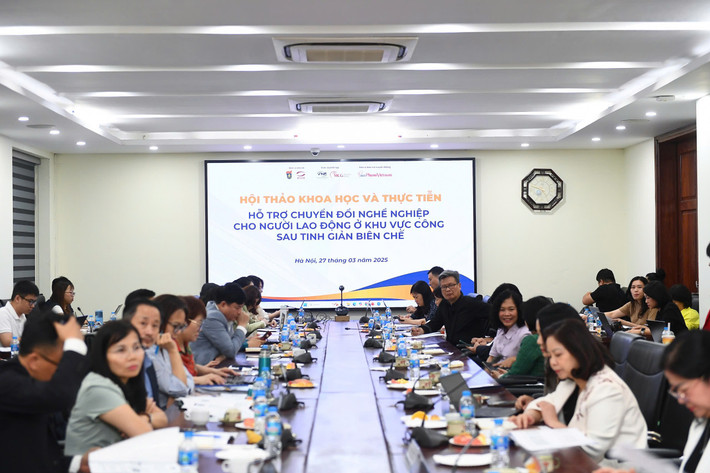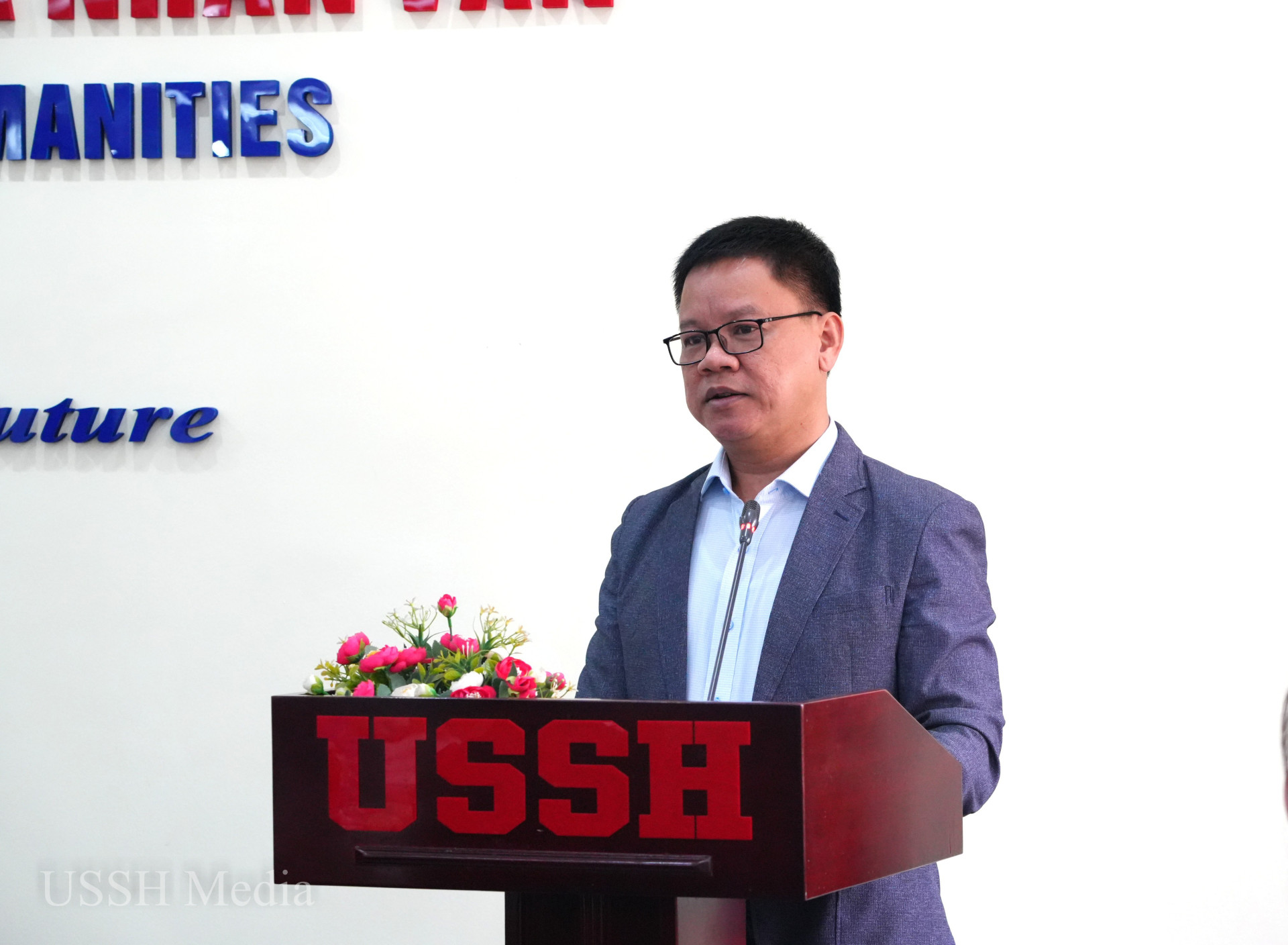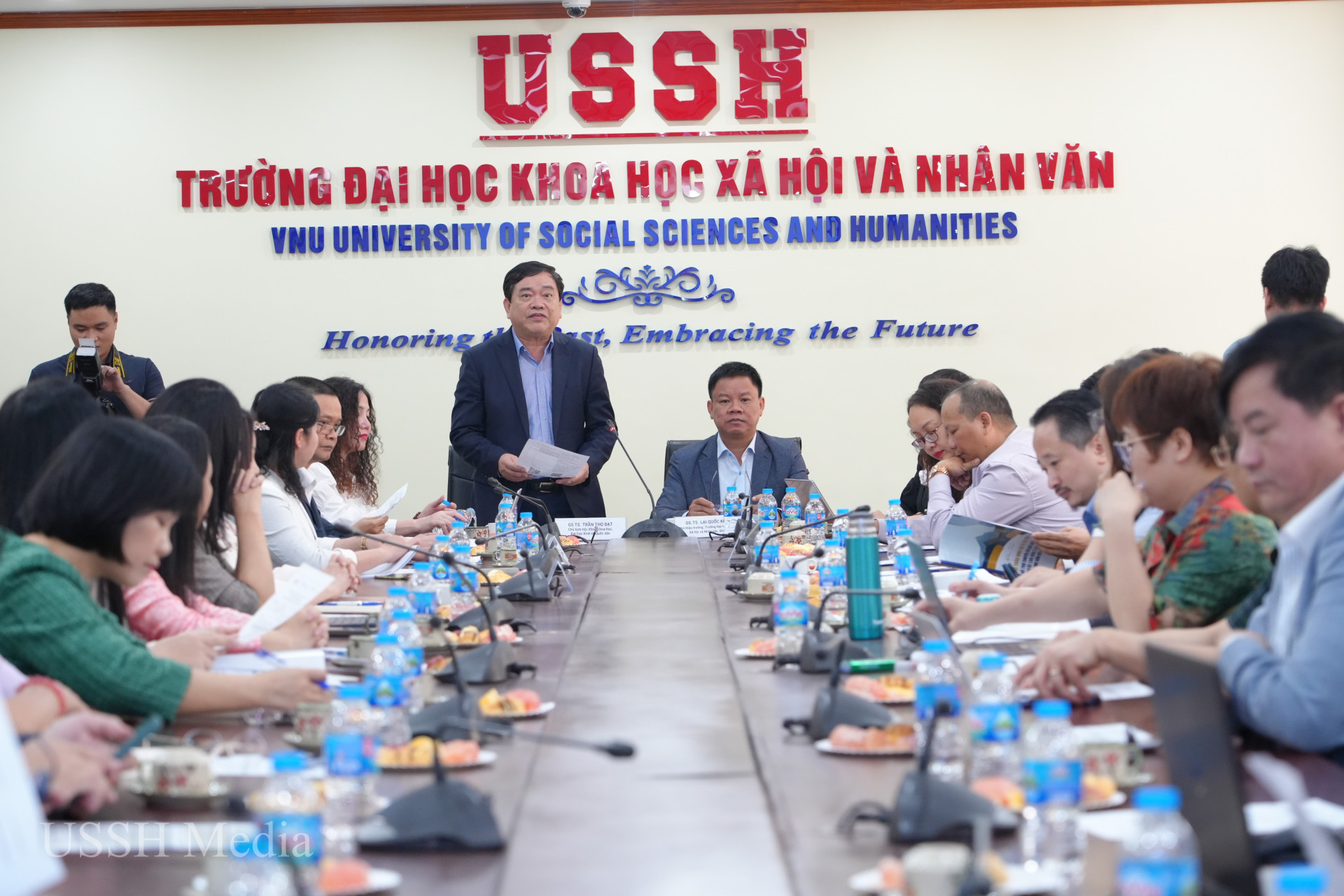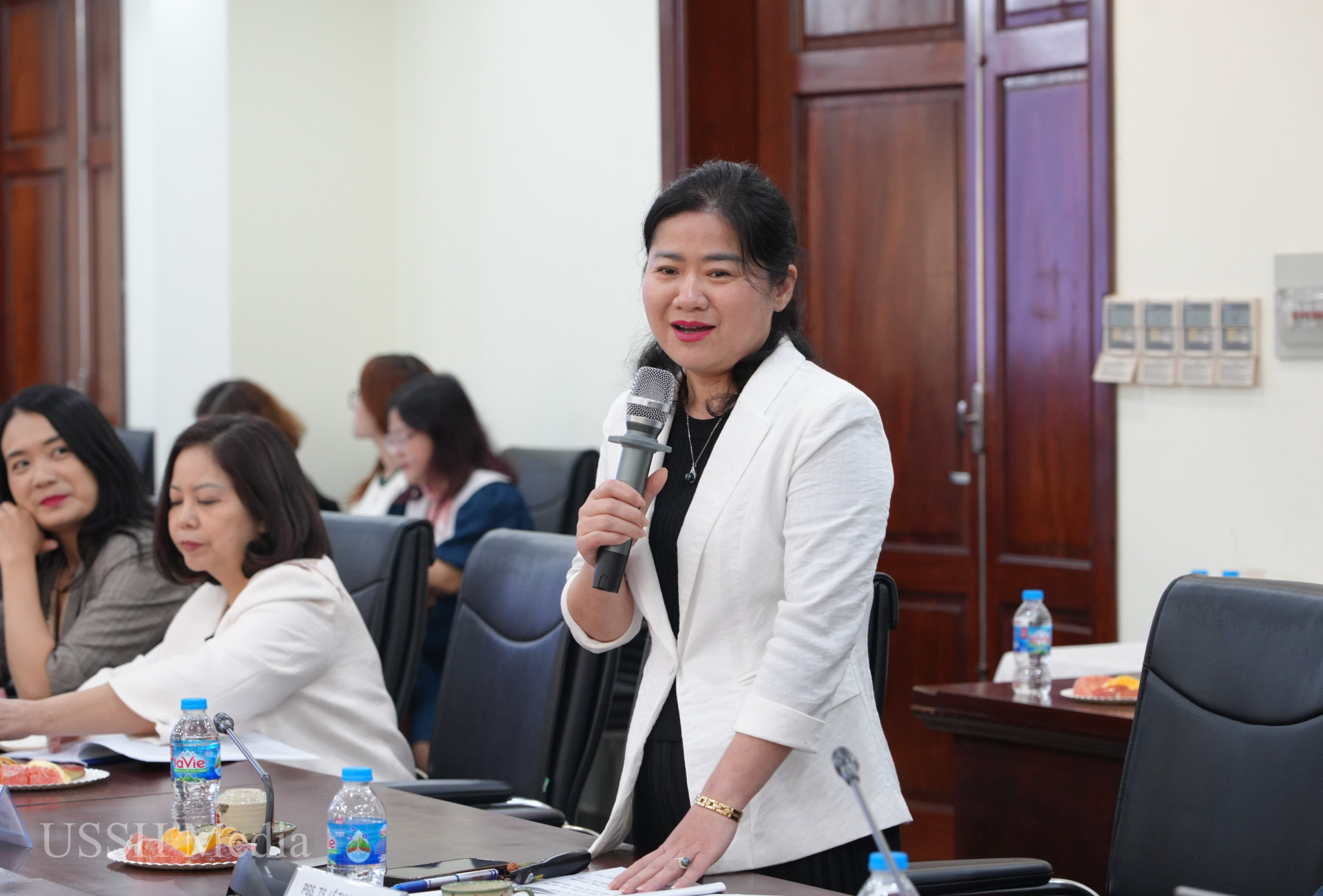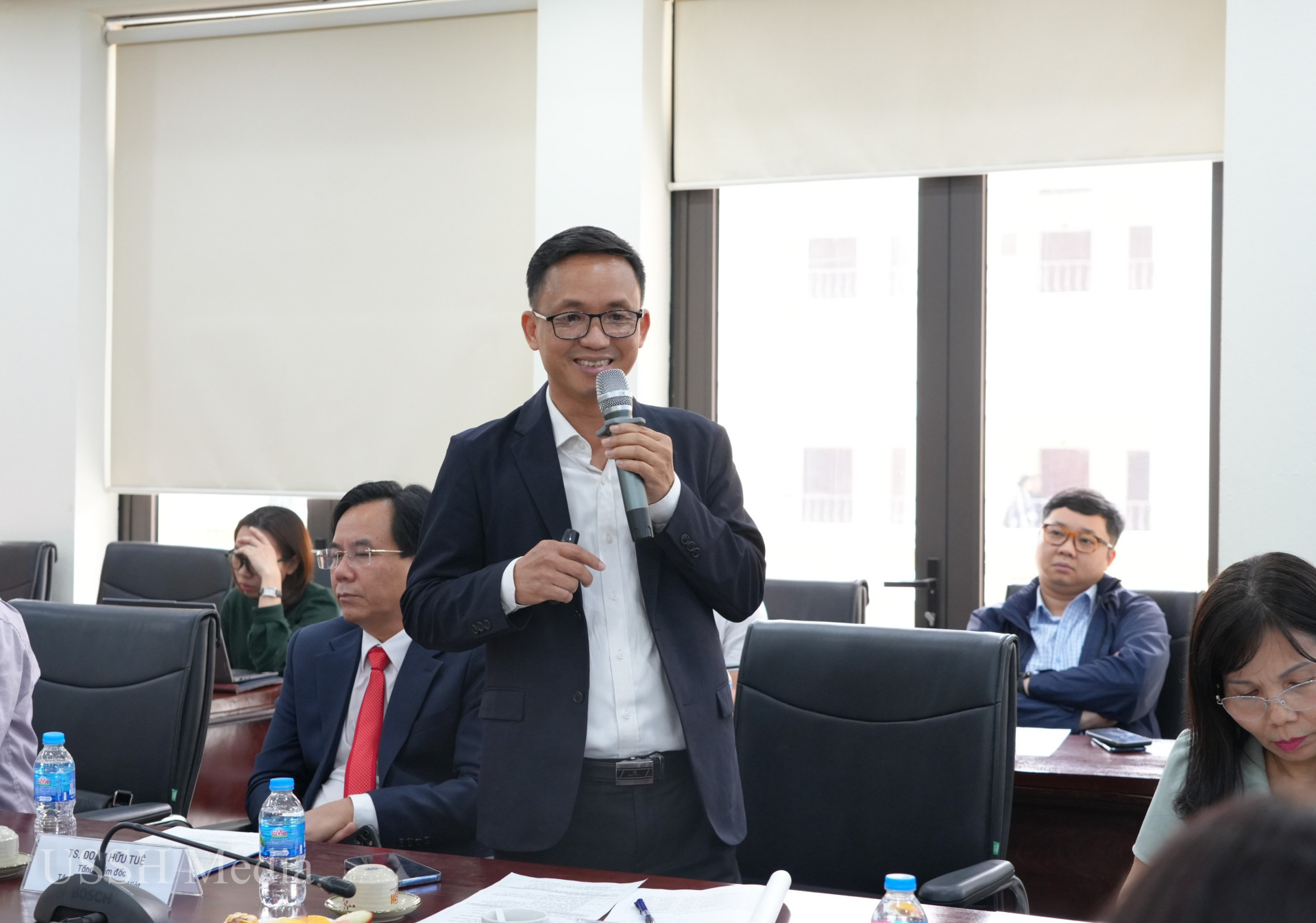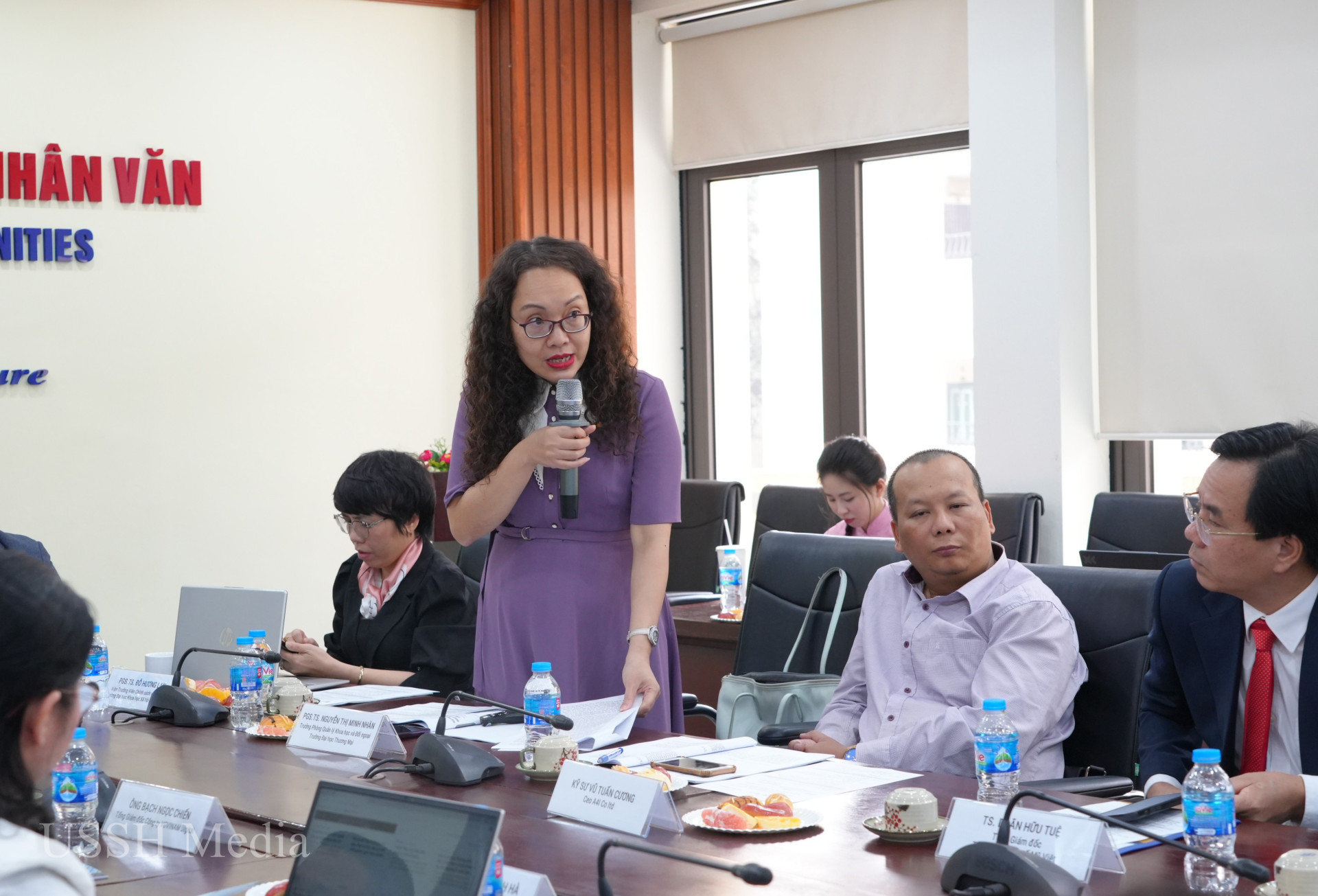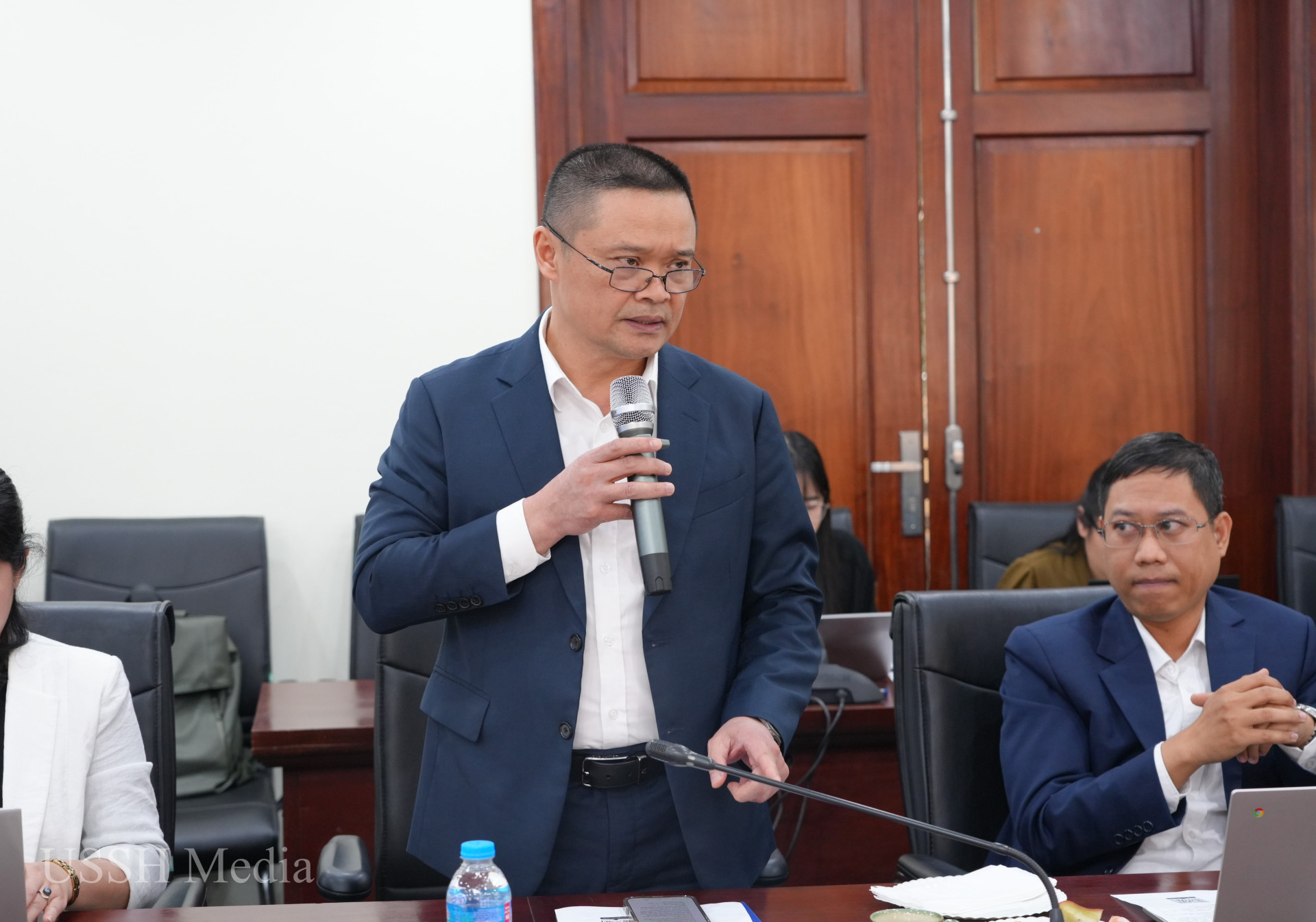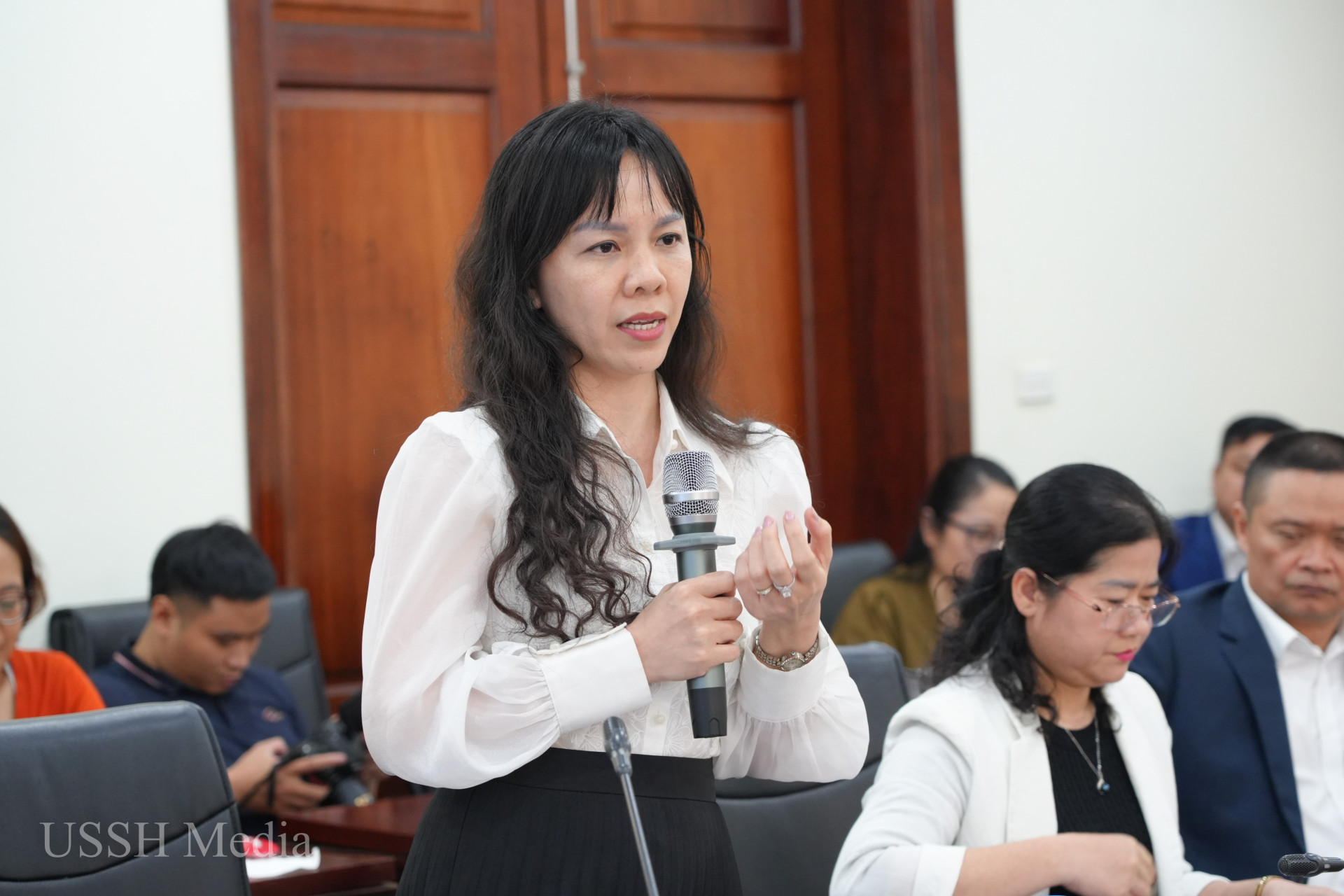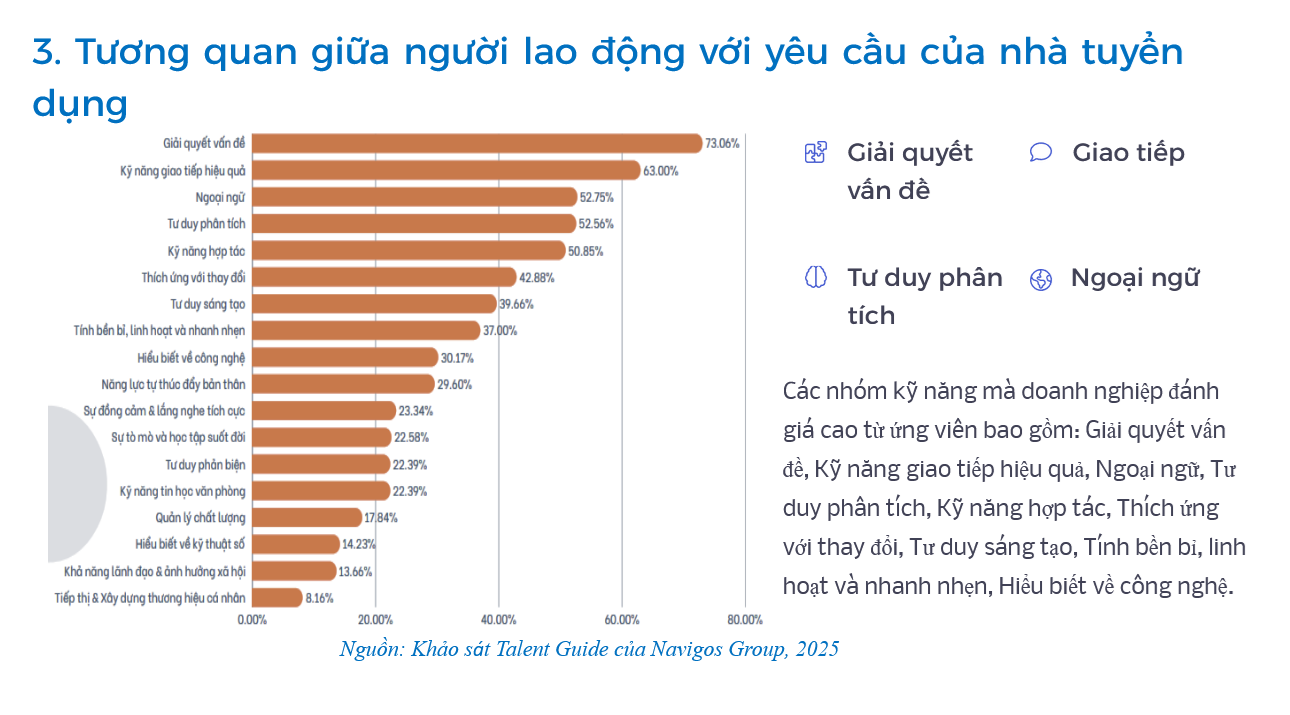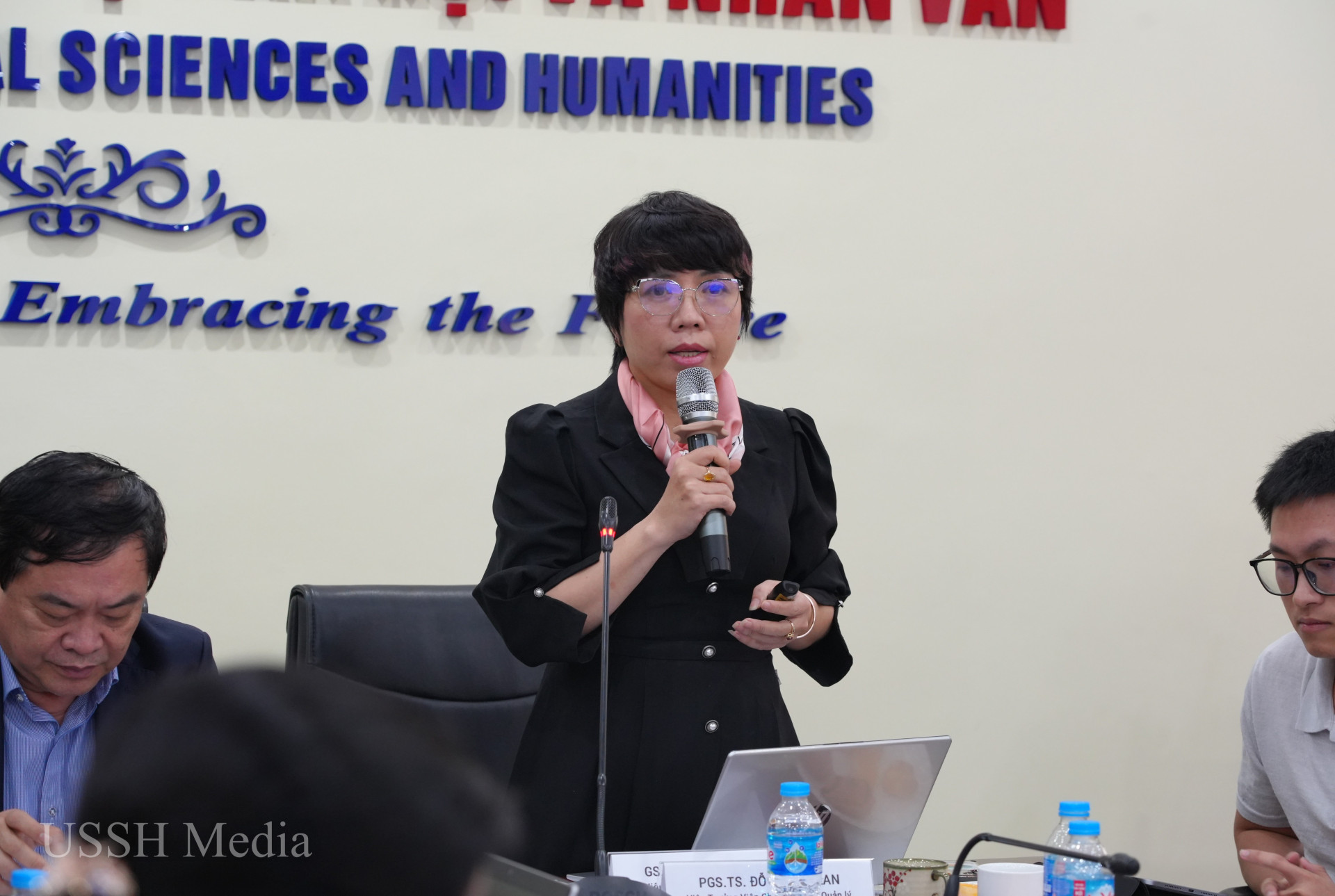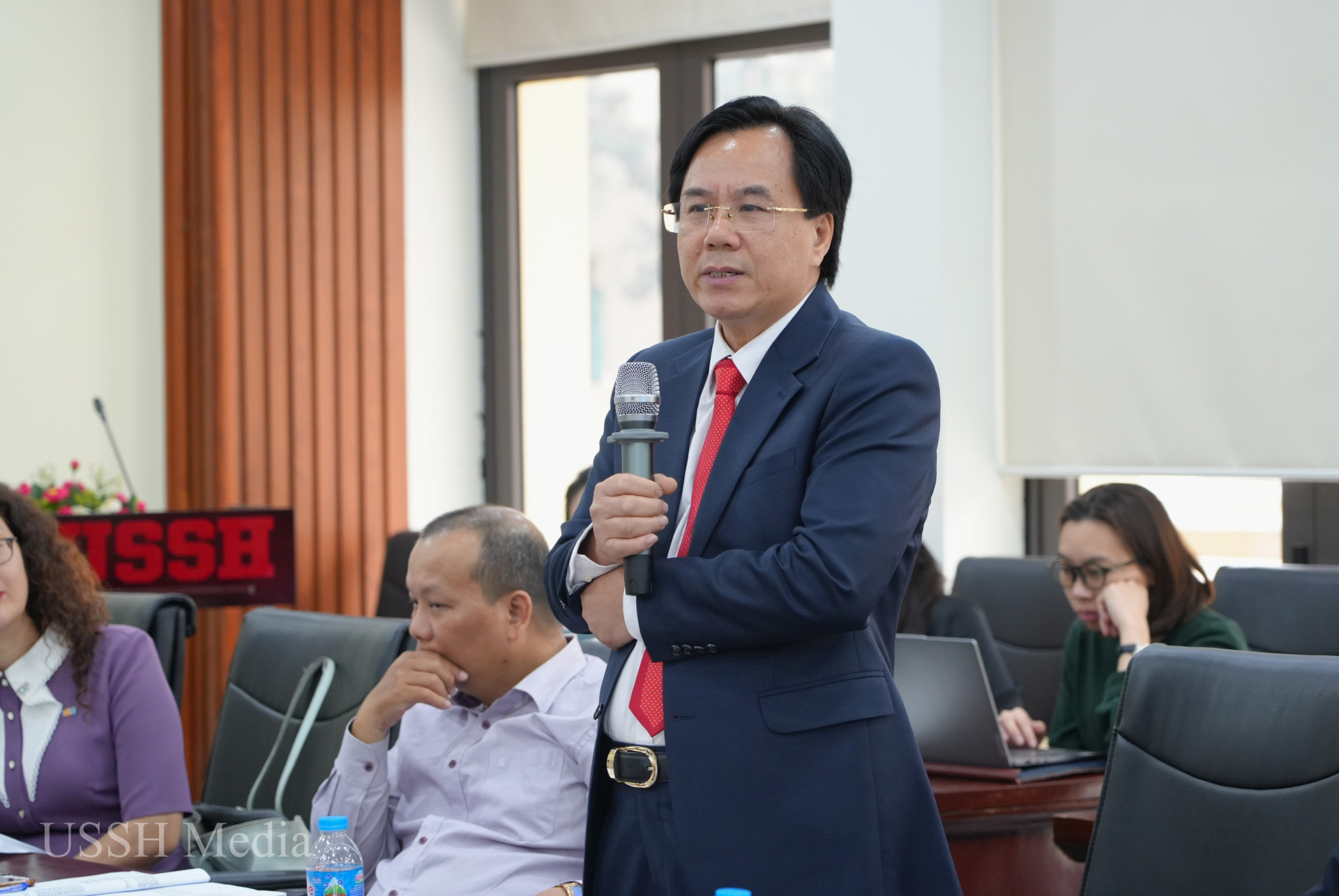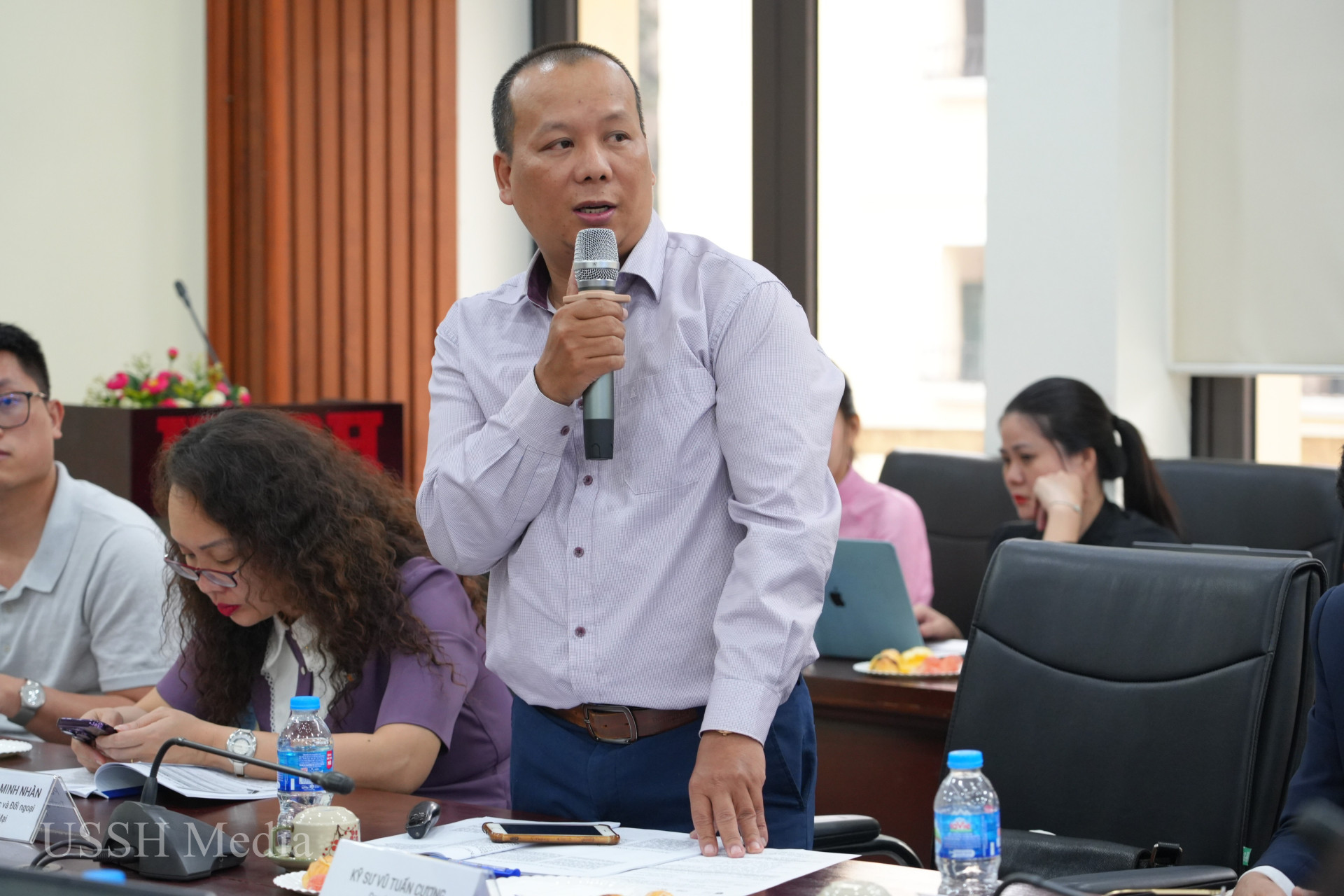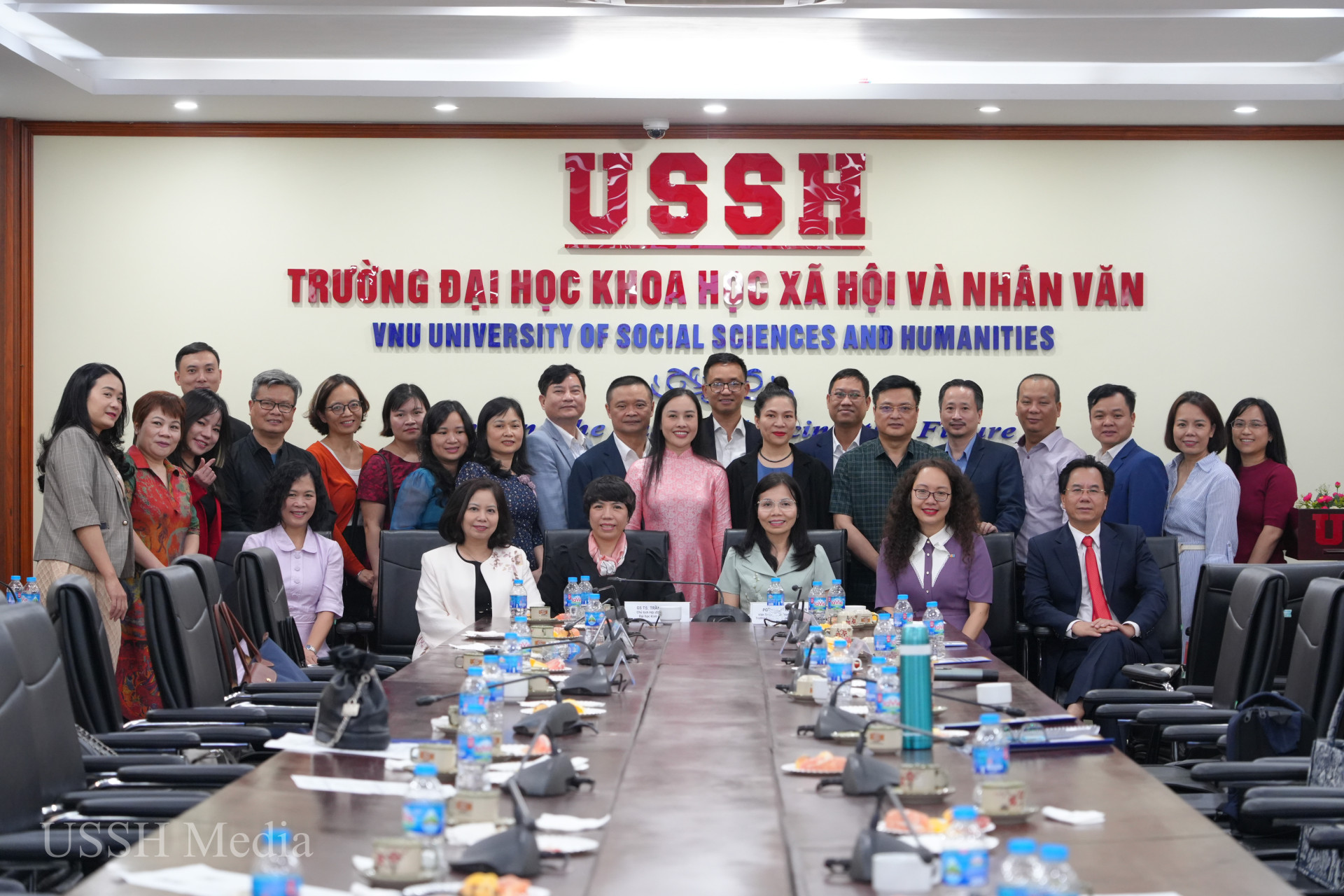New context of streamlined and strong organizational structureIn the context of strong administrative reform and streamlining the state management apparatus to increase operational efficiency, tens of thousands of cadres, civil servants and public employees are facing career instability. From 2021 to now, nearly 80,000 civil servants and public employees have been downsized, of which in 2022, about 39,500 people voluntarily resigned, mainly from key sectors such as education and health. These changes not only create gaps in the state administrative system but also open up new opportunities for workers, as they can move to the private sector, start their own businesses or participate in socio-economic development projects.
Prof. Dr. Lai Quoc Khanh - Vice Rector of the University of Social Sciences and Humanities, VNU delivered the opening speech at the conference.
Prof. Dr. Tran Tho Dat - Chairman of the Scientific Council of National Economics University co-chaired the conference.
According to Associate Professor, Dr. Le Thi Thanh Ha (Ho Chi Minh National Academy of Politics), Vietnam currently spends nearly 70% of its budget on salaries, regular expenses, and operations, leaving only about 30% for investment in development, security, and defense. The political system is still cumbersome and overlapping; some ministries and branches still take on local tasks, leading to a request-grant mechanism, giving rise to negativity and corruption. The work of streamlining the payroll associated with job positions, improving the quality and restructuring the team of civil servants and public employees is still lacking in thoroughness...
Assoc.Prof.Dr. Le Thi Thanh Ha - Ho Chi Minh National Academy of Politics
Resolution 18 of 2017, the 6th Conference of the 12th Central Executive Committee on continuing to innovate and reorganize the political system to be lean, effective and efficient, and the campaign to streamline the apparatus from the end of 2024 to present has received the consensus and response of the whole society.
Streamlining the organizational apparatus is not only an issue for Vietnam but also a common trend in countries around the world. In recent times, developed countries have promoted the implementation of personnel reduction in the public administrative apparatus. From a theoretical and practical perspective, it is urgent to innovate and arrange the organizational apparatus to be streamlined - compact - strong - efficient - effective - efficient.
The above context has posed challenges in terms of functions, tasks, personnel, institutions, policies, culture and thinking... Resolution of the 6th Central Conference (12th tenure) requires that innovation and reorganization of the political system's apparatus must be "implemented regularly, continuously, actively, strongly, with focus, key points, with a roadmap, and steady steps, meeting both immediate and long-term requirements".
International experience in supporting public sector workers to change careersAccording to MSc. Kieu Cong Thuoc - Chairman of VNFUND, career change for public sector workers is not simply a matter of finding a new job but also involves issues of support policies, skills training, adaptive psychology and the ability to integrate into the labor market outside the public sector. While many countries in the world have effective support policies and models, in Vietnam, this process still faces many challenges that need to be resolved.
MSc. Kieu Cong Thuoc - Chairman of VNFUND provided information on experiences in supporting public sector workers to change careers in some countries.
Providing information on international experience in supporting public sector workers and career transitions, such as the US, the European Union, Japan, South Korea, etc., MSc. Kieu Cong Thuoc said that successful factors in supporting career transitions include early career orientation and in-depth counseling; support for training in new skills suitable for the labor market; financial policies to support career transitions (subsidies, preferential loans, insurance funds, etc.) and connecting with the private sector to create new job opportunities.
Current and future trends in Vietnam's labor marketStreamlining the payroll is an important policy to improve the effectiveness and efficiency of state management, reduce the budget burden and build a streamlined and transparent administrative apparatus. This is a core solution to help optimize resources, modernize the apparatus and promote national development.
In the period from 2021 to 2025, the state apparatus has reduced 05 ministries, 03 ministerial-level agencies, reduced 518 departments, 218 departments, 2,958 branches, more than 100,000 civil servants and public employees were affected. In the next phase, continue to cut 50% of provincial-level administrative units, reduce 60-70% of commune-level (from 10,000 communes to 2,500 communes), eliminate district level, switch to a 2-level government model.
So what will the trend of Vietnam's labor market be like?
According to Associate Professor, Dr. Nguyen Thi Minh Nhan (University of Commerce), Vietnam's economy is recovering from the COVID-19 pandemic and is affected by many factors such as digital transformation, automation and international integration. Industries related to AI, data analysis, cybersecurity and renewable energy are growing rapidly. The trend of sustainable employment development is receiving more attention in labor policies in Vietnam.
Associate Professor, Dr. Nguyen Thi Minh Nhan shares analysis on job development trends in the new context.
Sharing the story of personal career transition and ecosystem synergy, Mr. Bach Ngoc Chien (General Director of VOVINAM Digital Company, former Vice Chairman of Nam Dinh Provincial People's Committee) said that the lean revolution is inevitable for development. This is an opportunity to retain and develop high-quality human resources in the state apparatus. Mr. Bach Ngoc Chien also recommended that a personnel evaluation system should be applied in the state apparatus to encourage the contribution of high-quality human resources.
Mr. Bach Ngoc Chien - General Director of VOVINAM Digital Company shares about the story of personal career transition and ecosystem synergy
What solutions are there for workers to change careers after downsizing?In the context of the economy transforming towards digitalization and international integration, supporting workers to change not only contributes to reducing unemployment pressure but also promotes the development of business sectors, expands the labor market and creates conditions for human resource diversification. The workshop received many discussions and proposed solutions to support workers to successfully change careers in the new economic, social and political context.
Associate Professor, Dr. Le Thi Thanh Ha (Ho Chi Minh National Academy of Politics) proposed that it is necessary to optimize the number of personnel, train and improve the capacity of cadres. Train and retrain cadres to meet new job requirements in the digital age, enhance digital transformation to minimize intermediate personnel. In addition, it is necessary to increase decentralization and delegation of authority in accordance with functions and tasks.
Innovate leadership and management thinking, apply digital transformation in human resource management. Transform from administrative management thinking to service thinking, set the goal of putting people at the center. Downsizing is not only based on quantity but also must ensure reasonable structure and capacity of the staff.
Associate Professor, Dr. Bui Thi Hong Thai - Director of the Center for Psychological and Social Research and Services, University of Social Sciences and Humanities shares psychological support solutions for workers to cope with the transition.
What skills do employees need to be equipped with to meet the requirements of employers? Associate Professor, Dr. Nguyen Thi Minh Nhan shared the groups of skills that businesses highly value from employees, including: Problem solving; Effective communication skills; Foreign languages; Analytical thinking; Collaboration skills; Adapting to change; Creative thinking; Persistence, flexibility and agility; Understanding of technology.
In addition, the speaker also affirmed the role of the state in the career transition of workers. There should be practical training programs to help workers develop systematic thinking, digital skills, communication, foreign languages and how to adapt to businesses. Training should combine online and offline, linking theory with practice. At the same time, there should be financial support policies and job transition guidance to help them easily integrate into the labor market.
To support civil servants and public employees after the downsizing, it is necessary to strengthen labor market forecasting, provide job information and organize business connection sessions. Encourage state-owned enterprises and foreign-invested sectors to recruit this human resource. The Government has also issued Decree 178/2024/ND-CP with policies such as early retirement support, severance pay, retraining and re-employment of competent personnel, helping workers have more development opportunities suitable to the new context.
Proposing groups of solutions on policies, finance and synchronous implementation of other solutions, MSc. Kieu Cong Thuoc affirmed the importance of supporting career transition for public sector workers and recommended that competent authorities soon issue appropriate policies and solutions to support workers to successfully change careers, contributing to the sustainable development of the country. Mr. Kieu Cong Thuoc emphasized: "At each stage, there should be separate policies, ensuring policy flexibility and social stability".
Assoc.Prof.Dr. Do Huong Lan - Director of the Institute of Policy and Management, University of Social Sciences and Humanities
Associate Professor, Dr. Do Huong Lan - Director of the Institute of Policy and Management, University of Social Sciences and Humanities affirmed: "Changing careers is not a loss, but an opportunity for workers".
As one of the country's leading training and research centers, Hanoi University of Social Sciences and Humanities has over the years carried out a series of research studies, scientific seminars, conducted assessment reports, proposed policy recommendations, and provided policy advice on social security and labor and employment issues to meet the country's socio-economic development needs. In particular, the Institute of Policy and Management has cooperated with a number of businesses to build and develop a program to support workers with an ecosystem to support career transition.
ROAD2NEXT.
This is a multidimensional ecosystem that helps public sector workers reposition themselves, awaken their hidden or “dormant” potential and overcome challenges when leaving the public sector. In addition, workers are retrained, upgraded with new qualifications and skills to meet the requirements of the labor market; find new career development opportunities and successfully and sustainably change careers to suit their personal abilities and market needs.
Dr. Doan Huu Tue - General Director of My Viet International Group presented a paper with the topic "From the public sector to the private sector: What preparations are needed to adapt and develop oneself?"
Engineer Vu Tuan Cuong presented a paper on "Job opportunities and startups from cross-border e-commerce"
The workshop attracted the participation of many scientists and managers at universities, organizations and businesses.
